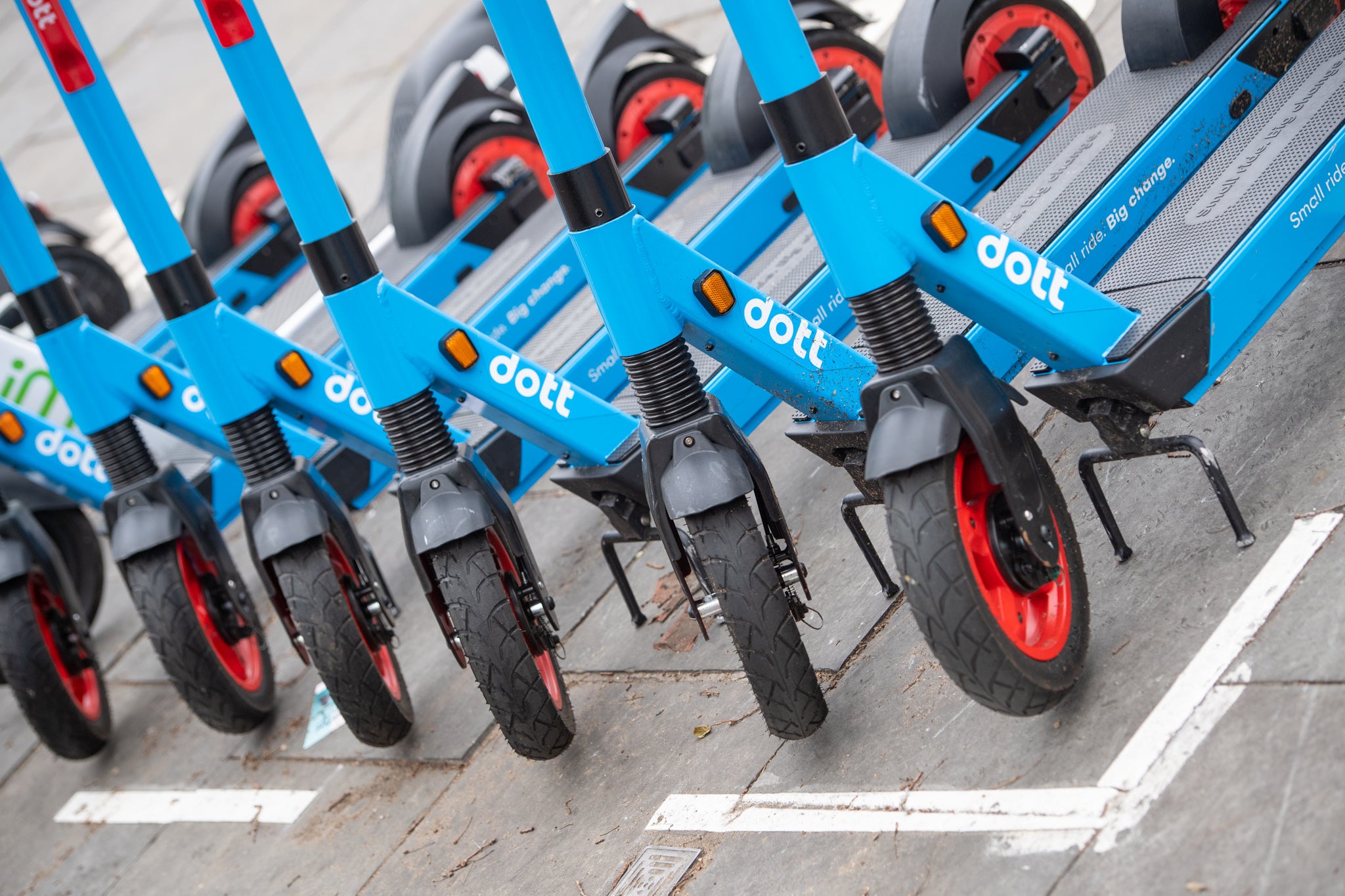E-scooters used to identify potholes to help boost safety
Micro-mobility firm Dott fitted sensors to some of its rental e-scooters to collect road surface data.

E-scooters have been used to record potholes in a bid to boost safety for riders.
Micro-mobility firm Dott said it fitted sensors to some of its rental e-scooters in London to collect road surface data during 1,800 rides covering more than 2,000 miles.
The sensors, provided by technology firm See.Sense, detect road roughness and changes in the behaviour of riders such as extreme braking and swerving.
Sudden movements by riders indicate they are on a road with an uneven surface.
E-scooters have smaller wheels than motor vehicles and bicycles, meaning they are more vulnerable to potholes.
Danger areas identified as part of the 10-week trial in London have been shared with authorities responsible for maintaining those roads.
Dott co-founder Maxim Romain said: “Quality infrastructure is key to helping users of micro-mobility feel safe whilst on the road.
“The results of this new trial, in partnership with See.Sense, reveal that Dott’s vehicles can do more than provide efficient, reliable and sustainable transport for its riders – they can also deliver valuable learnings to create smart cities which are safer and more pleasant for all residents.”
Department for Transport statistics show three e-scooter riders were killed and a further 729 were injured in crashes in Britain during the year ending June.
It is not known how many of the incidents were due to poor road surfaces.
Research figures from the RAC revealed that the proportion of breakdowns which were pothole-related between July and September was the highest for that three-month period since 2006.
The firm dealt with 1,810 call outs for broken suspension springs, distorted wheels and damaged shock absorbers, which represented 1.2% of all incidents.
See.Sense co-founder Irene McAleese commented: “Our technology has been created to provide safety-focused data on the adoption and maintenance of infrastructure.
“We’re excited to partner with Dott on this project to demonstrate a scalable solution that provides cities with powerful data driven insights that will help cities unlock the true potential of micro-mobility.”
Dott is considering rolling out the technology more widely across London and into other European cities.
Private e-scooters are banned from public roads and pavements in the UK, but Dott is one of several operators involved in legalised Government trials of rental e-scooters.
Bookmark popover
Removed from bookmarks